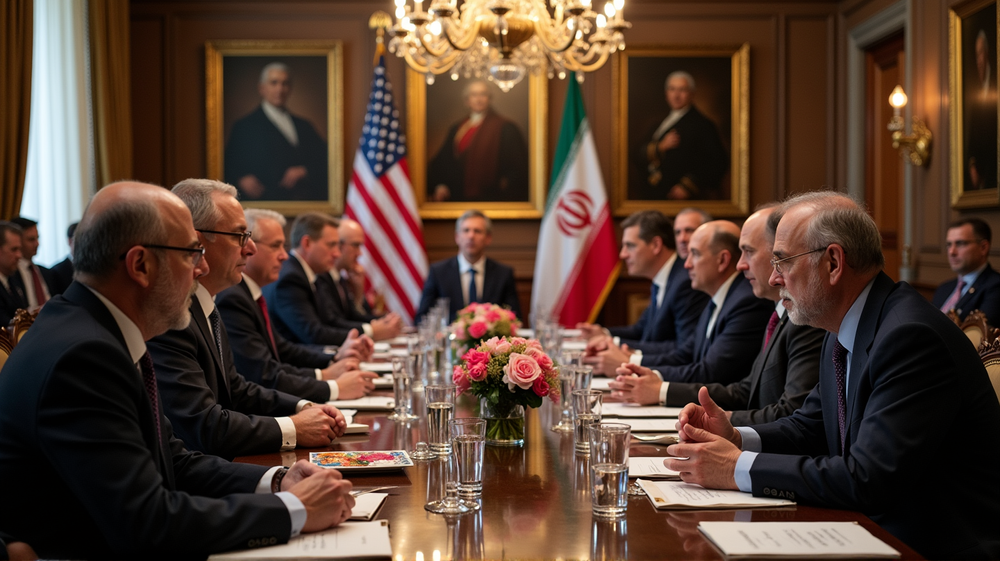In a significant development, high-ranking officials from the United States and Iran are converging in Rome for a pivotal round of nuclear negotiations. These discussions are seen as essential to untangle the complex web of diplomatic standoffs and economic sanctions that have plagued both nations. Sources indicate that the atmosphere is tense but hopeful as Omani Foreign Minister Badr Albusaidi steps in as the mediator.
The Stakes in Rome
With the revival of nuclear talks between the US and Iran, the world watches closely. This marks the fifth meeting in a series aimed at curtailing Iran’s nuclear enrichment levels. The US stands firm on its demand for Iran to halt uranium enrichment, while Tehran seeks sanctions relief and insists on its rights under the Nuclear Non-Proliferation Treaty, especially concerning uranium enrichment. According to DW, much hinges on the upcoming rounds of negotiation.
Diplomacy Under Pressure
Overseen by US President Donald Trump’s administration, the stakes are high as diplomatic efforts are juxtaposed with military threats. Trump’s “maximum pressure” strategy is evident in his stern stance implying military action if negotiations collapse. Such rhetoric has fueled Iran’s urgency to devise a mutually beneficial agreement that can alleviate the economic burdens they face due to US sanctions.
Beneath the Surface of Negotiations
Iran currently enriches uranium to 60% purity, far exceeding the limits set under the 2015 agreement but still short of weapon-grade levels. As the talks progress, both sides find themselves locked over contentious points, with Iran’s Foreign Minister Abbas Araghchi asserting that halting enrichment altogether would be unacceptable. The path to a viable agreement lies in innovative diplomacy and increased international inspections, a notion Tehran has shown willingness to consider.
Beyond Rome: What Lies Ahead?
As a resolution is sought, the June meeting of the International Atomic Energy Agency looms near, offering another opportunity for dialogue and potential treaty adjustments. The impending expiration of certain 2015 deal components adds urgency to the Rome talks. Can these negotiations rekindle hope for a revived nuclear deal, or will they descend into yet another impasse? Only time will reveal.
Global Implications and Reactions
Notably, these discussions occur amid broader geopolitical tensions. Israeli forces have intercepted missiles from Yemen, highlighting the region’s volatility. Meanwhile, international voices, including those from France, Britain, and Canada, urge de-escalation and the waiving of humanitarian blockades in regions like Gaza, showing how intertwined politics and humanitarian efforts are in the Middle East.
The world is watching closely—in hopes that this chapter of dialogue will yield a peaceful and lasting solution.












